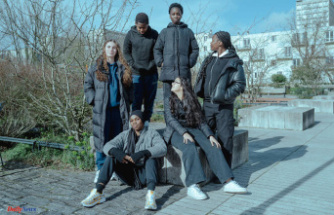Opponents say they are getting momentum from the national reckoning of racial injustice.
Students from the Ivy League are urging administrators to end the policy. In November, Yale's student government voted against the practice. Recent Harvard students voted against it. Many students and alumni from 30 colleges have pledged to withhold any financial donations in protest of the issue.
Civil rights groups are adding support to each other, including the American Civil Liberties Union. This group is working on legacy preferences in a campaign against systematic racists.
A bill introduced in Congress seeks to end the practice.
Democrats propose to ban preferences for children of donors or alumni at colleges that receive federal funds. The party's progressive wing is pushing it, but some conservative activists support it. They want college admissions to be solely based on merit.
It's difficult to determine how many legacy students are granted a push in the highly guarded world college admissions . According to data provided by colleges to the Associated Press, 10% to 20% of the newest incoming classes are students with family ties at the most selective colleges.
Many students are leading the opposition on campuses. They include students of color, and those who were the first to go to college. Students who have a legacy status are more likely to have tutoring, test prep, and other assistance when applying to college.
Zoe Fuad, a Brown University junior, stated that it reinforces a cycle of inequity that was created to serve wealthy white men.
Fuad, 20, a member of a student group challenging Brown's systemic favoritism, stated that by giving their descendants perpetual advantages, they are ensuring that those who were systemically favoured continue to be favored."
Legacy admissions are supported by many prestigious colleges, who claim it encourages donations and builds alumni communities. Harvard officials and others argue that legacy status is only one factor in admissions. Other factors include grades, test scores, and pursuits beyond school. They say that it is unlikely to tip the scales in favor of a student.
Two colleges recently ended the practice, which gives opponents hope that others will.
Amherst College, Massachusetts , dropped the policy on October. They said it "inadvertently restricts educational opportunity." Johns Hopkins University also announced in 2020 that they had eliminated legacy preferences. The school has seen a rise in the number of Hispanic and Black students.
The backlash against legacy preferences is growing amid a wider debate about fairness in college admissions.
The Supreme Court reviewed whether colleges should consider race when considering applicants for admissions. The court will hear lawsuits alleging discrimination by Harvard University against Asian American applicants, in favor of Black or Hispanic students.
The conservative strategist behind the suits voted in support of the Democrats' bill to eliminate legacy benefits, in rare bipartisan unity. Edward Blum stated that too many colleges have lowered the admissions standards for children of alumni.
Many schools keep the information private and don't have to reveal how many legacy students are enrolled. Only eight of the 30 most selective colleges in the country provided basic information on the subject to an AP request.
These colleges had a 12% average share of legacy students in their freshman classes. Rice University in Houston had the lowest percentage, with 4% of its first-year class having legacy status. According to the University of Notre Dame, legacy students account for 23% of all student bodies over the past decade.
In freshman classes at four schools, Legacy students outnumbered Blacks: Notre Dame College, Cornell, Dartmouth, Dartmouth, and the University of Southern California. Brown had a similar ratio of Black and legacy students.
Harvard declined to provide details. However, data that was made public during the affirmative action trial showed that family ties have greater weight. According to the plaintiffs' analysis, the acceptance rate of legacy applicants increased from 2014 to 2019. It was 34% compared to 6% for applicants who did not have legacy status.
Critics claim that the practice contributes to a persistently low number of Black students attending top colleges. Hundreds of Georgetown University students signed a petition calling for the end of legacy preference. They claimed that it "relegates qualified Black student to second-tier status" during the racial reckoning after George Floyd's death by police.
Historians trace the origins of legacy preference back to the 1920s, when elite colleges tried to reduce the number Jewish students. This continued for decades in a time when most college students in America were white men.
According to Michael Dannenberg, vice president of the Education Reform Now think-tank, many schools with legacy preference did not admit Black students until the 1960s.
"White applicants have between 8 and 16 generations on which to build an alumni connection," stated Dannenberg. He was an aide of Sen. Ted Kennedy, the late Massachusetts Democrat. "There are only one or two generations for the majority of Black and Latino applicants."
Student activists on college campuses claim they are still being opposed by school leaders who support the policy. However, in a time when populism is rising in America, college activists say they are unlikely to find any allies in Congress or other halls of power. Richard Kahlenberg, a senior fellow with the Century Foundation, a progressive think-tank in Washington, stated that colleges will not find allies in Congress.
He said that colleges are finding it more difficult to defend wealthy policies, especially in light of the Varsity Blues admissions scandal.
He said, "They are clearly susceptible on this issue."
After that scandal, Colorado became one of the first states to ban legacy preferences from public colleges. California legislators required colleges to disclose the number of legacy students they accept.
Campus activists have a burning desire to change the perception of top colleges as ivory towers for the rich. Viet Andy Nguyen was a first-generation, low-income student who applied to Brown University. He knew that he would be competing with wealthier students connected through alumni. He began to question whether Brown University was the right place for him.
He graduated from Brown in 2017 and founded EdMobilizer, a nonprofit with the aim of increasing college access and ending legacy preferences. He's helped students on numerous campuses fight the practice of donating boycotts at schools in the U.S.
He doesn't think it's a surprise that he is challenging a policy that would benefit his children in the future. Some students of color have resisted him, questioning why he would want to end the policy now that campuses are more diverse. He says that the goal is to make it possible for students to be included, and not to create an elite group of people of color.
He said, "My children will be fine." "They don’t need an extra bump just to be my offspring."












